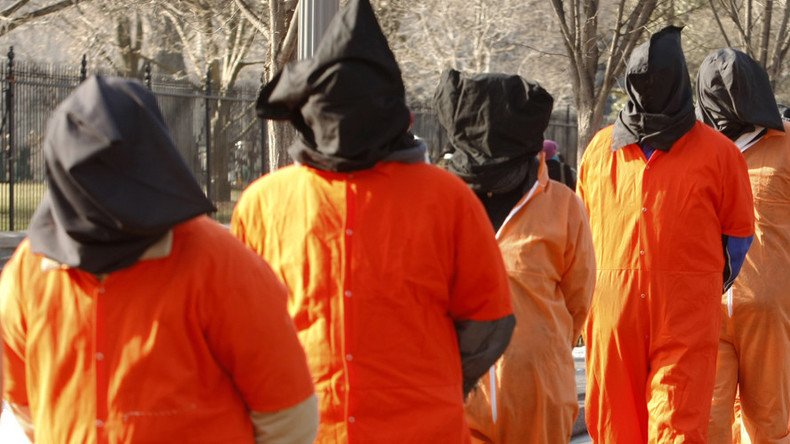May condemns torture… as ex-army Tory MP says ‘sometimes it might be justified’

Prime Minister Theresa May has condemned torture in response to President Donald Trump’s suggestion he will resume post-9/11 interrogation practices. But one of her own MPs has admitted he “was a kind of torturer” while serving in Northern Ireland.
Colonel Bob Stewart told the BBC he would likely be counted as a torturer today due to methods he employed as a soldier serving in Northern Ireland during ‘the Troubles’, the name given to the unrest there during the late 20th century.
The admission came just hours after May, who is visiting the US, distanced herself from reports that President Trump is considering an executive order to reopen torture ‘black sites’ like those employed by the US during the so-called War on Terror.
At a Republican Party event on Thursday, May appeared to stand firm on the issue, telling the politicians gathered: “We condemn torture and my view on that won’t change – whether I’m talking to you or talking to the president.”
“Our guidance is very clear about the position that the UK takes, and our position has not changed,” she insisted.
There are rumors the UK may consider withdrawing or limiting intelligence-sharing agreements if the president holds his course on reintroducing torture.
Stewart, who is most famous for his work uncovering ethnic cleansing in Bosnia, told BBC radio: “No one likes torture – not even Trump likes torture.”
“The fact of the matter is, as we both accept, sometimes it might work, and sometimes it might be justified,” he said.
He argued that there are certain circumstance where “a great number of people, or indeed one person, is going to be killed, you have to think very carefully about what pressure you can put on people in order to give that information to stop people’s lives being lost.
“A certain amount of persuasion might be justified if someone, for example, had the knowledge about where a nuclear weapon that was going to explode in London was,” he said.
Stewart was referring to the controversial ‘five techniques’ of abusive interrogation used by the British military and intelligence services on prisoners during the Northern Irish Troubles.
These included stress positions, shouting, sleep deprivation and hooding. The methods became widely used during the War on Terror in the wake of the September 11 attacks alongside the simulated drowning torture known as waterboarding.
Stewart’s admission jars with May’s uncompromising stance, weakening her position ahead of her first meeting with Trump.
The disadvantage may be further compounded by a recent Supreme Court judgment that Libyan dissident Abdul Hakim Belhaj and his wife may sue former Labour Foreign Secretary Jack Straw and the former head of MI6 over their UK-assisted kidnap and subsequent torture by the regime of late Libyan leader Colonel Muammar Gaddafi.














